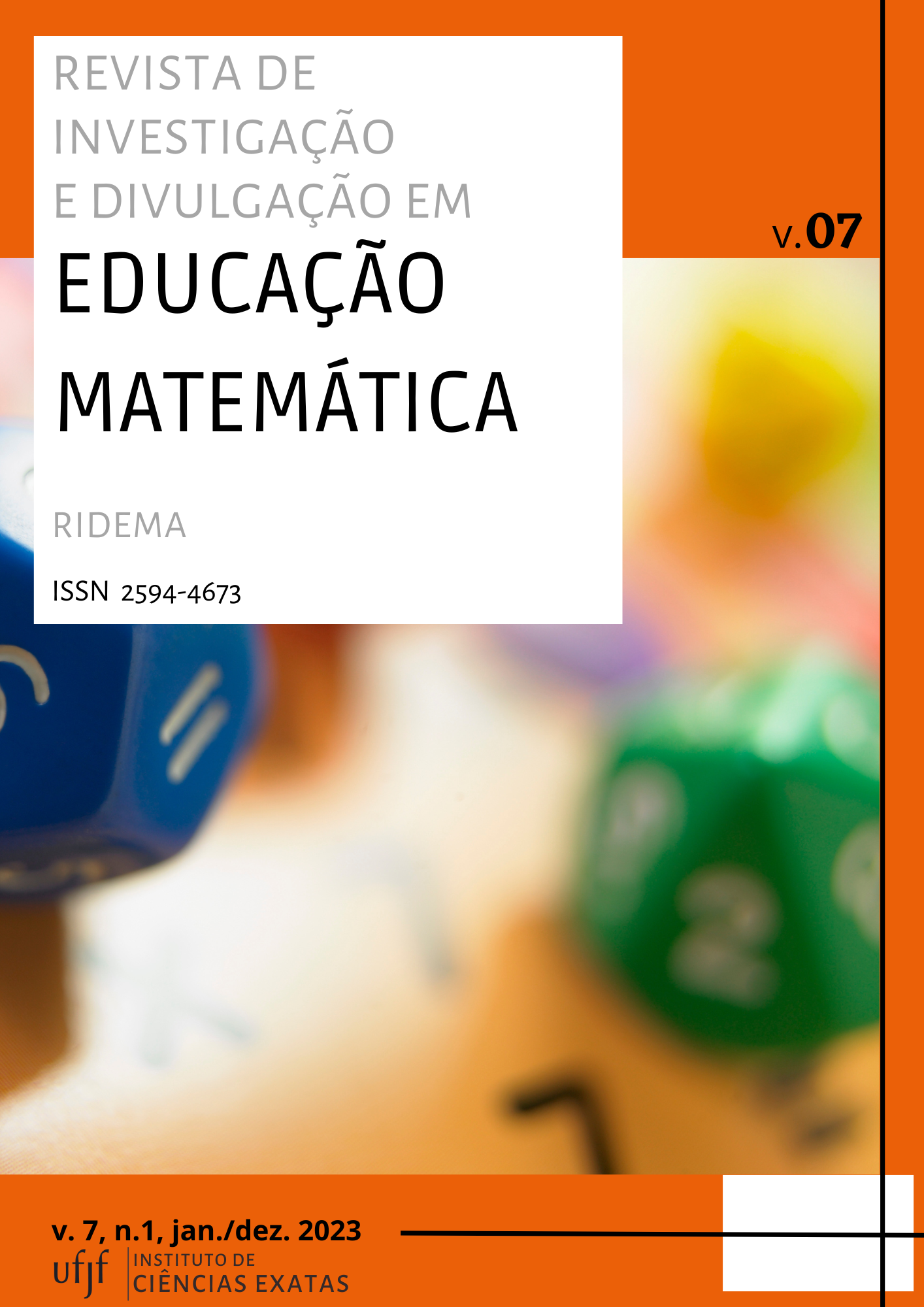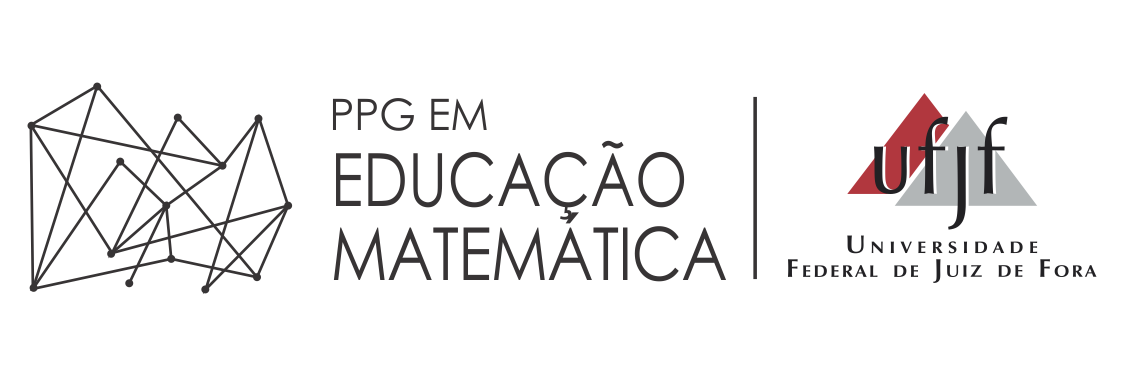Teaching through the STEAM Approach and Realistic Mathematics Education: pedagogical practices connected to the students' context
DOI:
https://doi.org/10.34019/2594-4673.2023.v7.41104Keywords:
STEAM Approach; Realistic Mathematics Education; High School; Teaching; Mathematics.Abstract
Educational results in mathematics indicate the relevance of promoting innovative pedagogical practices. This article aims to present elements of the STEAM approach (Science, Technology, Engineering, Art and Mathematics) and Realistic Mathematics Education (RME), which emphasize the importance of connecting students' context to the teaching and learning process and establish a link between these and the National Common Curricular Base (BNCC). Based on exploratory research with a bibliographical and documental design, a qualitative systematic analysis was carried out, through an intentional sampling on STEAM and RME, with the aim of integrating and comparing these themes and articulations with the BNCC. It was concluded that pedagogical practices involving the STEAM approach and RME can contribute to the process of teaching and learning mathematics, as they involve integration and contextualization of knowledge in a critical and creative way, elements present in the BNCC.
Downloads
Metrics
References
ALHADDAB, Taghreed A.; ALNATHEER, Suleman A. Future Scientists: How women's and minorities' math self-efficacy and science perception affect their STEM major selection. In.: IEEE Integrated STEM Education Conference, p. 58-63, 2015. Disponível em: <https://ieeexplore.ieee.org/document/7119946>. Acesso em: 28 abr. 2022.
BACICH, Lilian; HOLANDA, Leandro. (Org.) STEAM em sala de aula: a aprendizagem baseada em projetos integrando conhecimentos na educação básica. Porto Alegre: Penso, 2020.
BIGODE, Antonio José Lopes. Matemática Realística uma perspectiva curricular para a educação do século XXI. In.: Anais do XI Encontro Nacional de Educação Matemática. Curitiba, 2013. ISSN 2178-034X.
BRASIL. Ministério da Educação. Base Nacional Comum Curricular. MEC, 2018. Brasília, DF, 2018. Disponível em: < http://basenacionalcomum.mec.gov.br/>. Acesso em: 9 mar. 2023.
BYBEE, Rodger W. The Case For STEM Education: Challenges and Opportunities. Arlington, Virgínia. NSTA Press, 2013.
FERREIRA, Pamela Emanueli Alves; BURIASCO, Regina Luzia Corio de. Educação matemática realística: uma abordagem para os processos de ensino e de aprendizagem. In: Revista Educação Matemática Pesquisa, v. 18, n. 1, p. 237-252, 2016, São Paulo. Disponível em: <https://revistas.pucsp.br/index.php/emp/issue/view/1442>. Acesso em: 12 mar. 2023.
GAROFALO, Débora; BACICH, Lilian. Um olhar para a aprendizagem socioemocional no STEAM. In: BACICH, Lilian; HOLANDA, Leandro. (Org.) STEAM em sala de aula: a aprendizagem baseada em projetos integrando conhecimentos na educação básica. Porto Alegre: Penso, 2020.
GRANT, Maria J.; BOOTH, Andrew. A typology of reviews: an analysis of 14 review types and associated methodologies. Health Information and Libraries Journal, 26, pp.91–108, 2009. DOI: https://doi.org/10.1111/j.1471-1842.2009.00848.x
HENRIKSEN, Danah; MEHTA, Rohit; MEHTA, Swati. Design Thinking Gives STEAM to Teaching: A Framework That Breaks Disciplinary Boundaries. In: KHINE, Myint Swe; AREEPATTAMANNIL, Shaljan. (Org.) STEAM Education – Theory and Practice. 1a. ed. Estados Unidos: Springer, 2019.
INEP. Instituto Nacional de Estudos e Pesquisas Anísio Teixeira. Ministério da Educação. Apresentação da Coletiva de Imprensa - SAEB 2021. 27/02/2023. Disponível em: <https://www.gov.br/inep/pt-br/areas-de-atuacao/avaliacao-e-exames-educacionais/saeb/resultados> Acesso em: 30 abr. 2023
KHINE, Myint Swe; AREEPATTAMANNIL, Shaljan. (Org.) STEAM Education – Theory and Practice. 1a. ed. Estados Unidos: Springer, 2019.
LOPEZ, Juliana Maira Soares; BURIASCO, Regina Luzia Corio de; FERREIRA, Pamela Emanueli Alves Ferreira. Educação Matemática Realística: considerações para a avaliação da aprendizagem. In.: Revista Perspectivas da Educação Matemática.
v. 7, n. 14, p. 248-265, 2014. Disponível em: <https://periodicos.ufms.br/index.php/pedmat/issue/view/74> Acesso em: 12 mar. 2023.
LORENZIN, Mariana. Formação de professores: vencendo os desafios de implementação do STEAM. In: BACICH, Lilian; HOLANDA, Leandro. (Org.) STEAM em sala de aula: a aprendizagem baseada em projetos integrando conhecimentos na educação básica. Porto Alegre: Penso, 2020.
MACIANO, Giseli Duardo; MACIEL, Cristiano. Abordagem STEAM e Educação Matemática Realística: Uma Articulação Propositiva para o Ensino. XVI Encontro de Pesquisa em Educação da Região Centro Oeste, ANPED-CO. Universidade Estadual de Mato Grosso do Sul (UEMS), 2022. Disponível em: <http://anais.anped.org.br/regionais/sites/default/files/trabalhos/47/11080-TEXTO_PROPOSTA_COMPLETO.pdf>
SIGNORELLI, Vinicius. STEM, STEAM, como assim? In: SARMENTO, Maristela. O futuro alcançou a escola? o aluno digital, a BNCC e o uso de metodologias ativas de aprendizagem. Editora do Brasil SA e Zoom Editora Educacional SA., 2019, p. 87-92.
TREVISAN, André Luis; BURIASCO, Regina Luzia Corio de. Educação Matemática Realística: Uma Abordagem para o Ensino e a Avaliação em Matemática. In.: REVEMAT. v.10, n. 2, p. 167-184, 2015. Disponível em: <https://periodicos.ufsc.br/index.php/revemat/issue/view/2362>. Acesso em: 28 abr. 2022.
World Health Organization. International Labor Organization. Preventing and mitigating COVID-19 at work. Policy brief 19 May 2021. Disponível em: <https://www.who.int/emergencies/diseases/novel-coronavirus-2019/technical-guidance-publications>. Acesso em: 03 mai. 2023.



























